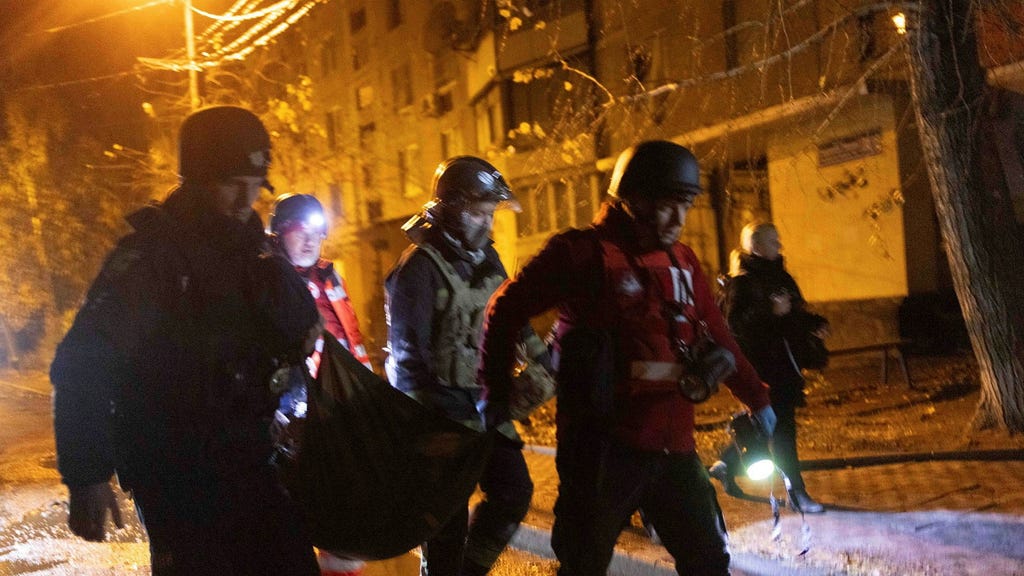The Escalation of Antibiotic Resistance in War-Torn Ukraine: A Deep Dive into the Crisis
Prior to the 2022 Russian invasion, Ukraine grappled with a concerning prevalence of antibiotic resistance, a phenomenon where bacteria evolve to withstand the effects of antibiotics, rendering treatment ineffective. The ongoing war has dramatically exacerbated this pre-existing challenge, transforming it into a full-blown crisis. Recent research reveals a chilling reality: a significant portion of the bacteria causing infections in war-related injuries are not merely resistant to multiple antibiotics, but are entirely resistant to all available treatments. Furthermore, these bacteria exhibit heightened virulence, making them exceptionally dangerous and difficult to manage. This combination of total resistance and increased pathogenicity presents a grave threat to public health, both within Ukraine and potentially beyond its borders.
Professor Kristian Riesbeck, a clinical bacteriologist at Lund University, initiated a collaboration with Ukrainian microbiologist Oleksandr Nazarchuk shortly after the invasion began. Their aim was to investigate the extent of antibiotic resistance in severely wounded patients suffering from infections in Ukrainian hospitals. The study, involving samples from 141 war casualties, including 133 adults and 8 newborns with pneumonia, painted a grim picture. A substantial proportion of the samples displayed resistance to broad-spectrum antibiotics, the first line of defense against many bacterial infections. Alarmingly, 6% of the samples were completely resistant to all tested antibiotics, signifying a critical challenge in treating infections caused by these “superbugs.” Such infections become incredibly challenging, often impossible, to treat with currently available antibiotics, highlighting the urgent need for new therapeutic strategies.
The war’s impact extends beyond creating conditions conducive to infection and increased antibiotic use. The conflict itself directly contributes to the escalation of antibiotic resistance. The widespread presence of heavy metals, a consequence of warfare, plays a significant role. Environments contaminated with heavy metals are known to promote the development of antibiotic resistance in bacteria. The continuous exposure to these metals provides a selective pressure, favoring the survival and proliferation of resistant strains. This, coupled with the breakdown of healthcare infrastructure and sanitation systems, creates a perfect storm for the emergence and spread of resistant bacteria.
Focusing on one specific “war bacterium,” Klebsiella pneumoniae, found in the patient samples, researchers delved deeper into the nature of this emerging threat. This bacterium, commonly found in hospitals, is notorious for causing a wide range of infections, from urinary tract infections and pneumonia to wound infections and life-threatening sepsis. Analyzing samples from 37 patients known to harbor Klebsiella pneumoniae, the researchers investigated both antibiotic resistance and virulence. The findings were disturbing: a quarter of the bacteria were resistant to all commercially available antibiotics.
Even more concerning was the discovery of heightened virulence in these resistant strains. Typically, bacteria that develop resistance to antibiotics often become less virulent, as their energy resources are diverted towards maintaining resistance mechanisms. However, the Klebsiella pneumoniae strains isolated from Ukrainian patients defied this expectation. They possessed genes that conferred both resistance and increased virulence, making them highly transmissible and capable of causing severe infections. This unexpected finding underscores the complex and evolving nature of antibiotic resistance in conflict zones, highlighting the potential for the emergence of highly dangerous, resistant pathogens.
The results of this study are deeply alarming. The collapse of healthcare infrastructure, coupled with the environmental pressures of war, has created a breeding ground for highly resistant and virulent bacterial strains. The emergence of pan-resistant bacteria, coupled with their enhanced ability to cause disease, presents a formidable challenge to global health security. These findings underscore the urgent need for increased surveillance, improved sanitation and hygiene practices, and the development of novel antibiotics and alternative therapeutic strategies to combat this growing threat. Without immediate and concerted action, the crisis of antibiotic resistance in conflict zones risks spiraling out of control, posing a significant threat to public health worldwide.
The implications of this escalating antibiotic resistance crisis extend far beyond the immediate context of the war in Ukraine. The potential for these highly resistant and virulent bacteria to spread to other regions is a serious concern, particularly with the displacement of large populations and the movement of wounded individuals across borders. The emergence of pan-resistant bacteria necessitates urgent action on multiple fronts. This includes strengthening global surveillance networks to monitor the spread of resistant strains, promoting responsible antibiotic stewardship to minimize the development of resistance, and investing heavily in research and development of new antibiotics and alternative therapies.
Furthermore, addressing the root causes that contribute to the rise of antibiotic resistance in conflict zones is crucial. This includes improving sanitation and hygiene practices in healthcare settings, ensuring access to clean water and proper waste management, and mitigating the environmental impact of war, particularly the release of heavy metals. International collaboration is essential in tackling this global challenge. Sharing data, expertise, and resources across borders is crucial to developing effective strategies for preventing and controlling the spread of antibiotic-resistant bacteria. The crisis in Ukraine serves as a stark reminder of the interconnectedness of global health and the urgent need for concerted international action to address the growing threat of antibiotic resistance. Failure to act decisively now could have devastating consequences for public health worldwide.














